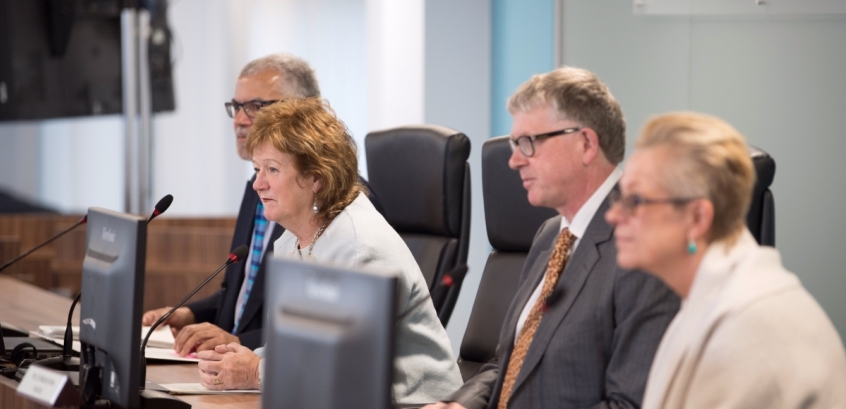The Church of England is bracing itself for more revelations of how senior figures covered up child sex abuse with police considering whether to press charges against the former archbishop of Canterbury, George Carey.
Anglican leaders will come under the most intense scrutiny they have faced over their handling of abuse allegations as the Church goes before the independent inquiry into child sex abuse for the next three weeks.
Police are considering whether to launch an investigation against the former archbishop of Canterbury, George Carey, after he was forced to step down as an honorary bishop last year. Carey was found to have 'colluded' with a convicted sex abuser Peter Ball, the former bishop of Gloucester and Lewes.
When Ball was finally jailed in 2015 he was sentenced to 15 months for indecent assaults against a string of young men and also 32 months for misconduct in public office, opening up the possibility that other senior clergy could be jailed for their role in abuse.
A report by Dame Moira Gibb was highly critical of Carey's conduct while in office, finding that he received seven letters warning of Ball's abuse in 1992 but failed to pass six of them onto the police.
A Metropolitan Police spokesperson told Christian Today: 'The Metropolitan Police Service (MPS) continues to consider the report by Dame Moira Gibb into the Church of England's handling of the Bishop Peter Ball case to identify if there are any criminal matters that the MPS should investigate.'
Carey is expected to be called to give evidence to the independent inquiry which begins three weeks of public hearings into the Church of England today.
The current archbishop of Canterbury, Justin Welby, is also set to give evidence as is another former archbishop, Rowan Williams.

The CofE's lead bishop on safeguarding, Peter Hancock, warned the ruling general synod the Church faces a painful two years as it goes before a number of public hearings, examining how it handled past cases of child sex abuse.
'This will not be an easy couple of years – we will hear deeply painful accounts of abuse, of poor response, of "cover up",' he said, adding the Church will 'feel a deep sense of shame'.
But the issue is not just a historic one for the Church. Bishops insist the culture of the CofE has changed and point to a fivefold increase in spending on safeguarding since 2014 to demonstrate it is now considered a priority.
However in 2016 alone it was dealing with 2,700 abuse allegations and concerns, more than 700 of which relate to clergy and church officials.
The Church also admitted it was expecting new cases of abuse to emerge as a result of the inquiry.
The hearings, which begin in London today, will focus on the diocese of Chichester, where they have been multiple allegations of sexual abuse, as a case study for the wider church.
Victims and their lawyers are expected to call for the Church's national safeguarding team to be made independent.
Richard Scorer, a specialist abuse lawyer at Slater & Gordon, who represents victims of Church of England abuse in IICSA, said the inquiry needed to enforce changes because the Church was guilty of a 'head-in-sand approach'.
He told Christian Today: 'I predict that the hearings will be very damaging for the Church. They will expose the mistreatment and denigration of victims which happened over many years, and the culture of abuse which was prevalent in the Chichester diocese and the church generally. They will expose the culture of cover up of abuse allegations, in relation to Peter Ball and many other cases – a culture that went right to the top of the church.
'The fundamental problem in the Church of England is that bishops are not accountable. A bishop is king in his diocese. If a bishop is resistant to safeguarding there is no real way to overcome this. There is also a competence problem – diocesan staff are trained in theology and canon law, not in safeguarding.'













